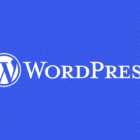In the aftermath of the Cambridge Analytica data scandal, Facebook is tightening its control on third-party applications and will no longer allow apps to post to user profiles. In April, the platform announced sweeping changes to the publish_actions permission, which allowed apps to publish to users’ timeline on their behalf.
On August 1st, 2018, the Live API publish_actions permission, which allows an app to publish on behalf of its Users, will be reserved for approved partners. A new permission model that allows apps to publish Videos to their User’s Groups and Timeline will be created instead.
Access to the Pages APIs requires re-submission of the application for review before August 1, 2018. This will be required to continue publishing live and VOD video to Pages, as well as reading insights.
Facebook is notorious for swiftly changing its APIs in ways that break apps (sometimes without warning), often sending developers scrambling. For a long time, apps auto-posting to user timelines was part of the wild west of app permissions granted without much oversight from Facebook. Users often unknowingly gave permission to apps that would collect data and spam their Facebook connections with posts made on their behalf.
Those days are over, but an unfortunate byproduct of this restriction is that apps like WordPress.com and Jetpack’s Publicize feature can no longer automatically publish posts to user timelines. This change also adversely affects apps like Buffer and Hootsuite that allow users to schedule and publish posts to their social accounts.
Jetpack 6.3.3 removes the ability for users to select Facebook Profile connections and displays a notice regarding existing connections, so users will be aware of which auto-posting connections they are losing. Besides Jetpack, this Facebook API change affects tens of thousands of users who have this functionality implemented through one of many other plugins on WordPress.org.
Users are now required to manually share their posts to their timelines. They can no longer schedule content to be shared to Facebook at specific times for different audiences.
Auto-posting to Facebook Pages still works, and one option users have is to convert their Profile to a Page or set up a new page. This may not be a suitable alternative for bloggers and those whose writing is not attached to a business or an organization.
In a recent post on his blog, Automattic CEO Matt Mullenweg commented on Facebook’s decision to turn off auto-posting to profiles.
“As it turns out, Facebook also is turning off the ability for WordPress sites — and all websites — to post directly to users’ profile pages,” Mullenweg said. “The decision to shut down the API is ostensibly to fight propaganda and misinformation on the platform, but I think it’s a big step back for their embrace of the open web. I hope they change their minds.”
If only a select few “approved partners” are allowed to automatically broadcast to user timelines, it puts smaller players at a disadvantage, requiring manual sharing each time they publish. Facebook is setting itself up as a gatekeeper that enables news from a small selection of partners to keep pumping through the platform on schedule. Individual voices on smaller websites are no longer able to syndicate to the Facebook platform unless they decide to create a Page.
Put a different way, the only syndicated content allowed on Facebook will be through channels the company can monetize – business/organization Pages or partners who are approved to post to user timelines. Users who care about retaining their Facebook audiences will need to remember to manually post their content to the social network after August 1, 2018, when the API changes go into effect.





